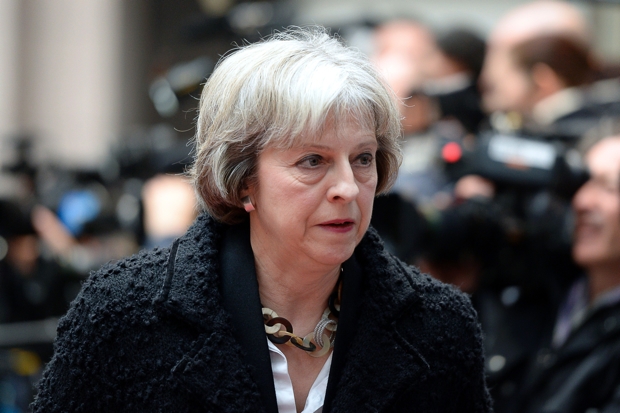One of the worst kept secrets at Westminster is that Theresa May has a distinctly low opinion of Boris Johnson. As Home Secretary she has had more dealings with the Mayor of London than most Cabinet ministers, and there is clearly no love lost between the pair. When she decided to turn down his request to deploy water canons in London she didn’t do so via a discrete written ministerial statement, but by a statement in the Commons which Johnson himself had to sit through.
So, there’s a certain irony that May has adopted the EU referendum position that many of Boris’s allies thought he would. She is for In, but with reservations and implicit criticisms of the renegotiation and the In campaign.
The tone of May’s speech today was clear from the start. She emphasised that ‘this is not a rally. It will not be an attack or even a criticism of people who take a different view to me.’ Throughout, she made clear that ‘of course Britain could cope outside the European Union’. She was also frank about the drawbacks of EU membership: ‘The Common Agricultural Policy, the Common Fisheries Policy, the free movement of people: none of these things work the way we would like them to work, and we need to be smarter about how we try to change these things in future.’ (This is, I think, the first implicit criticism of David Cameron’s renegotiation by a Remain supporting Secretary of State).
If this was not enough, there was also a barely coded criticism of the In campaign’s approach: ‘I do not want to stand here and insult people’s intelligence by claiming that everything about the EU is perfect, that membership of the EU is wholly good, nor do I believe those that say the sky will fall in if we vote to leave.’
In terms of substance, May argued that she wanted an end to EU enlargement, and set herself against Turkish membership: ‘Do we really think now is the time to contemplate a land border between the EU and countries like Iran, Iraq and Syria? Having agreed the end of the European principle of “ever closer union”, it is time to question the principle of ever wider expansion.’ Most controversially, she also called for Britain to leave the European Convention on Human Rights and the jurisdiction of the European Court of Human Rights. She argued that the convention and the court were far more damaging to Britain’s security than the European Court of Justice.
With this speech, May has carved out for herself her own position in the EU debate. She is an Inner, but only reluctantly and is in a very different place to Cameron and Osborne.
If you were to give an In speech that the Tory grassroots could sympathise with, this was it. Those of us—including me—who thought that May’s decision to back In marked the end of her leadership prospects might well have been premature.







Comments